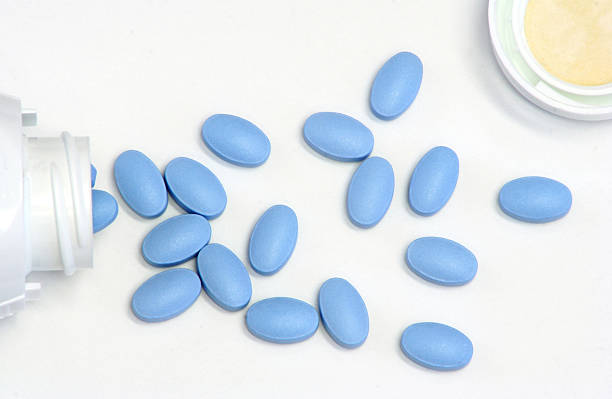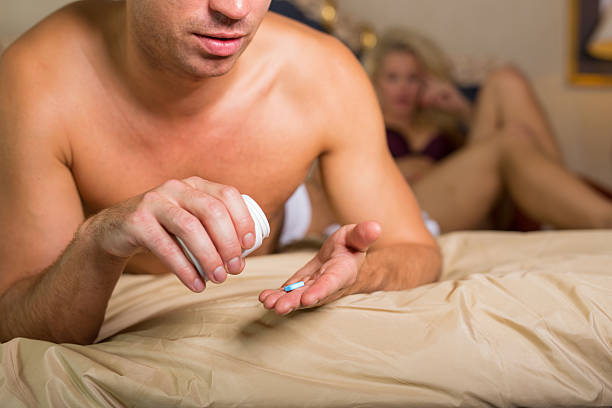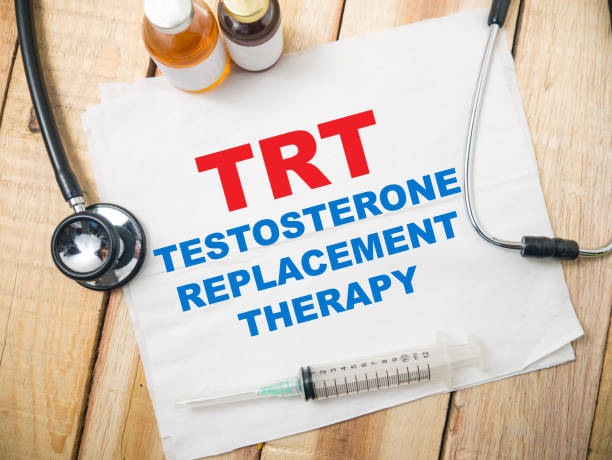Erectile dysfunction (ED) is a widespread concern among men, especially as they age. This condition can stem from various causes, including chronic stress, poor circulation, underlying health conditions like diabetes or heart disease, and hormonal imbalances such as low testosterone (T) levels. Since testosterone plays a crucial role in male sexual health, many men wonder if boosting their T levels could help restore erectile function.
One treatment that often comes up in discussions is Testosterone Replacement Therapy (TRT). But does TRT truly improve ED, or are there other underlying factors at play? In this article, we’ll take a closer look at the connection between testosterone and sexual health, explore the effectiveness of TRT, and discuss alternative treatment options that may help improve erectile function.
What Is Testosterone Replacement Therapy?
Testosterone is the primary male hormone responsible for muscle mass, bone strength, and sex drive. As men get older, their testosterone levels naturally decline. Some men experience symptoms like fatigue, depression, and sexual dysfunction due to low T levels.
TRT is a treatment that boosts testosterone levels in men with low T. It comes in different forms, including gels, patches, injections, and implants. The goal is to restore testosterone to normal levels and relieve symptoms. Doctors typically prescribe TRT after blood tests confirm low testosterone levels.

The Link Between Low Testosterone and Erectile Dysfunction
Testosterone plays a vital role in male sexual health, influencing both libido and erectile function. However, it is not the sole factor in achieving and maintaining erections. Healthy blood flow, proper nerve function, and overall well-being are also critical. While low testosterone (T) can lead to reduced sexual desire, it is not always the primary cause of erectile dysfunction (ED). Other common factors, such as high blood pressure, diabetes, obesity, and chronic stress, can also contribute to difficulties with erections.
In some cases, low T can impact nitric oxide production—a key molecule responsible for blood vessel dilation. Nitric oxide helps relax the blood vessels, allowing for proper circulation to the penis. When testosterone levels are low, nitric oxide levels may also decrease, making it harder to achieve or maintain an erection. This is why some men with low testosterone experience both a drop in sex drive and challenges with erectile function. Understanding the role of testosterone in ED can help men explore the right treatment options based on their specific needs.
Can TRT Help with Erectile Dysfunction?
For men with low testosterone, TRT may improve sex drive and energy levels. However, research shows mixed results when it comes to ED. TRT is most effective for men whose ED is directly linked to low T levels. If ED is caused by other health conditions, TRT may not be the best solution.
Possible Benefits of TRT:
- Increased sex drive
- More energy
- Improved mood
- Increased muscle mass
- Better overall well-being
- Possible improvements in erectile function (for some men)
Potential Risks of TRT:
- Acne and oily skin
- Increased red blood cell count (which may lead to blood clots)
- Swelling in the legs
- Possible heart risks
- Reduced sperm production, which can affect fertility
- Increased risk of prostate issues in some men

Other Treatment Options for ED
If TRT alone does not help with ED, other treatments may be needed. Some common options include:
- Medications: Drugs like Viagra, Cialis, and Levitra improve blood flow to the penis and can be effective for many men with ED.
- Lifestyle Changes: Eating a balanced diet, exercising regularly, managing stress, and quitting smoking can improve overall sexual health.
- Pelvic Floor Exercises: Strengthening the pelvic muscles with Kegel exercises may improve erectile function.
- Counseling: If stress, anxiety, or relationship issues are contributing to ED, therapy or couples counseling can help.
- Vacuum Erection Devices: These devices create a vacuum around the penis to encourage blood flow and help with erections.
- Surgical Options: In severe cases, procedures like penile implants may be considered.
Is Testosterone Replacement Therapy (TRT) Right for You?
If you’re experiencing symptoms of low testosterone (T) and erectile dysfunction (ED), consulting a healthcare professional is the first step. A simple blood test can measure your testosterone levels to determine if they are below the normal range. If low T is identified as a contributing factor, your doctor may discuss Testosterone Replacement Therapy (TRT) as a potential treatment. However, it’s essential to weigh both the benefits and risks before starting TRT.
While some men experience increased energy, improved mood, and a boost in sex drive within a few weeks, others may require a few months to notice significant changes. It’s also crucial to consider other possible causes of ED, such as poor circulation, diabetes, or high blood pressure. Your doctor can assess these factors and recommend additional treatments if necessary.
Regular follow-ups with a healthcare provider are key to ensuring that TRT is both effective and safe. Monitoring your progress, adjusting dosages if needed, and addressing any side effects can help optimize your results. By taking a comprehensive approach, you can determine whether TRT is the right solution for your sexual health and overall well-being.

Conclusion: Finding the Right Approach to ED Treatment
Testosterone Replacement Therapy (TRT) can be beneficial for some men struggling with erectile dysfunction (ED), but it is not a guaranteed solution. If low testosterone (T) is the primary cause of ED, TRT may help improve symptoms such as low libido and difficulty achieving or maintaining an erection. However, since ED often has multiple contributing factors—including poor circulation, stress, obesity, and underlying health conditions—other treatments may be necessary for the best results.
A comprehensive approach to sexual health may include lifestyle changes such as regular exercise, a balanced diet, weight management, and stress reduction. Additionally, medications like phosphodiesterase inhibitors (e.g., Viagra or Cialis), psychological therapy, or even medical interventions may be recommended depending on the root cause of ED.
Consulting a healthcare provider is crucial for identifying the best treatment plan for your specific needs. By exploring your options and making informed decisions, you can take proactive steps to improve your sexual health, confidence, and overall well-being.

